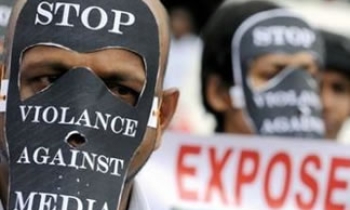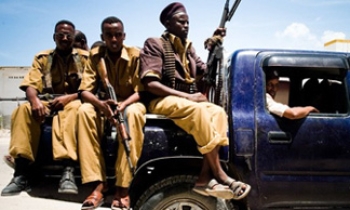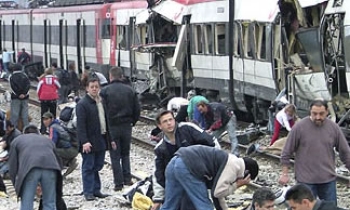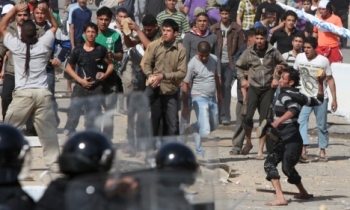Since the fall of Saddam Hussein the press in Iraq - like the rest of Iraqi society - has been in a constant state of flux.
The collapse of the old regime triggered a media free-for-all. Iraqis were soon able to choose from more than 200 publications, compared with just a handful during the Saddam era. But for every new publication that emerged, several others folded, largely owing to lack of funding. BBC sources in Baghdad estimate that the number of newspapers currently publishing on a regular basis is around 50. In Baghdad alone, about a dozen titles publish daily.
Almost all of Iraq's papers are funded by political or religious parties, except for the Al-Sabah daily which is backed by the US-led coalition. Even those which claim to be independent are usually known to have political affiliations.
Whilst the present, rather chaotic media scene may be considered an improvement on what went before, for some Iraqis the new press freedom has not lived up to expectations.
Many newspapers have a credibility problem among Iraqi readers and often contain unverified, false or heavily-biased reports, undermining any notion of independent journalism.
The lack of security in the country is also hindering any development of a free press. Media outlets and the journalists who work for them are frequent targets for attack by militant groups. As a result the overwhelming majority of reports carried by newspapers are sourced from the internet.
There are currently no reliable circulation figures available for papers published in Iraq. The difficult security situation causes distribution problems and some papers now publish internet editions in an attempt to overcome this.
Main papers
Al-Zaman: Al-Zaman was founded in London in 1997 by Saad al-Bazzaz, an Iraqi media tycoon, and is one of Iraq's most influential newspapers. The main editorial staff are still based in Britain, but the paper now has offices in major cities in Iraq and publishes a separate Iraqi edition. Its website is published in Arabic and English.
Al-Sabah: Al-Sabah was set up soon after the fall of Saddam Hussein in 2003 and now dominates the Iraqi newspaper market along with Al-Zaman. The paper is sponsored by the Iraqi Media Network, which was set up by the now-defunct US-led Coalition Provisional Authority (CPA). The newspaper's website contains Iraqi and international news, and a detailed sports and culture section. It also has a link to an editorial written in English.
Al-Sharq al-Awsat: This is the Baghdad edition of the Saudi-owned, London-based daily of the same name.
Al-Sabah al-Jadid: Al-Sabah al-Jadid was set up by the former editor-in-chief of Al-Sabah, Ismael Zayer. Mr Zayer resigned from Al-Sabah in May 2004 after accusing the US-led coalition of editorial interference. Since then Al-Sabah al-Jadid staff members - including Mr Zayer and his wife - have been the targets of violent attacks.
Al-Mada: Al-Mada is an independent newspaper known for its leftist views. Founded in August 2003 it is read mostly by middle-class Iraqis, especially intellectuals.
Al-Adalah: Al-Adalah is published by Iraq's main Shia Muslim political group, the Supreme Council for Islamic Revolution in Iraq (SCIRI).
Al-Bayan: Al-Bayan was set up soon after the fall of Saddam Hussein in 2003 and is owned by Dawa, the Shia party which numbers Prime Minister Nouri al-Maliki and his predecessor Ibrahim al-Jaafari among its leaders.
BBC Monitoring, based in Caversham in southern England, selects and translates information from radio, television, press, news agencies and the Internet from 150 countries in more than 70 languages.









